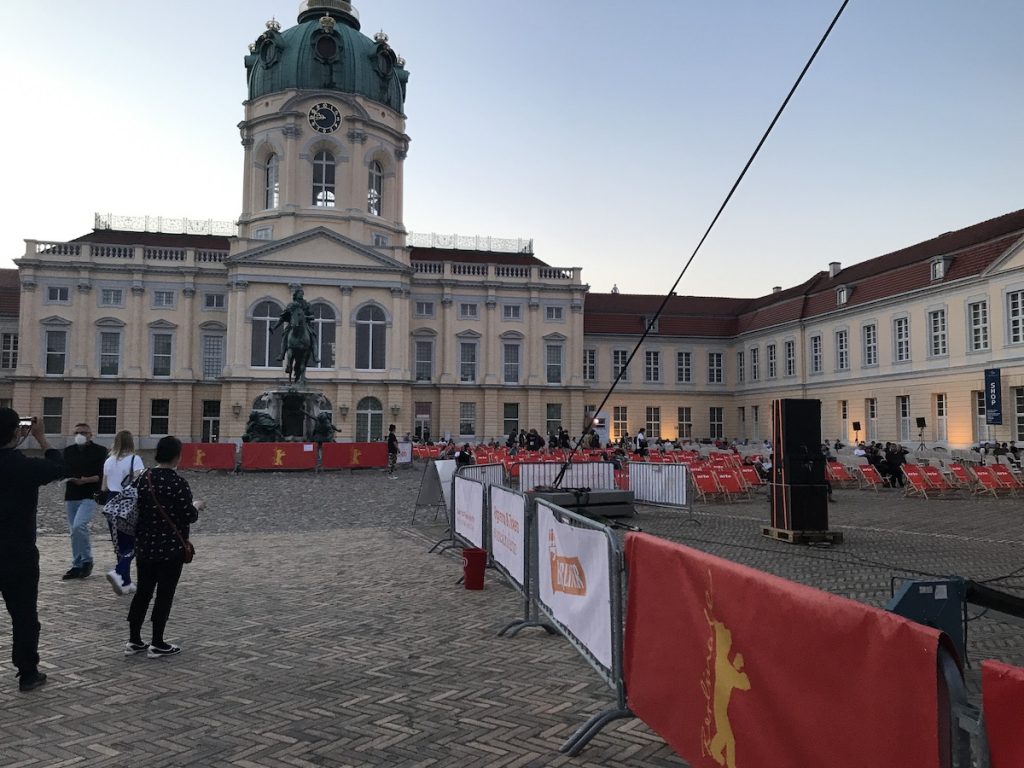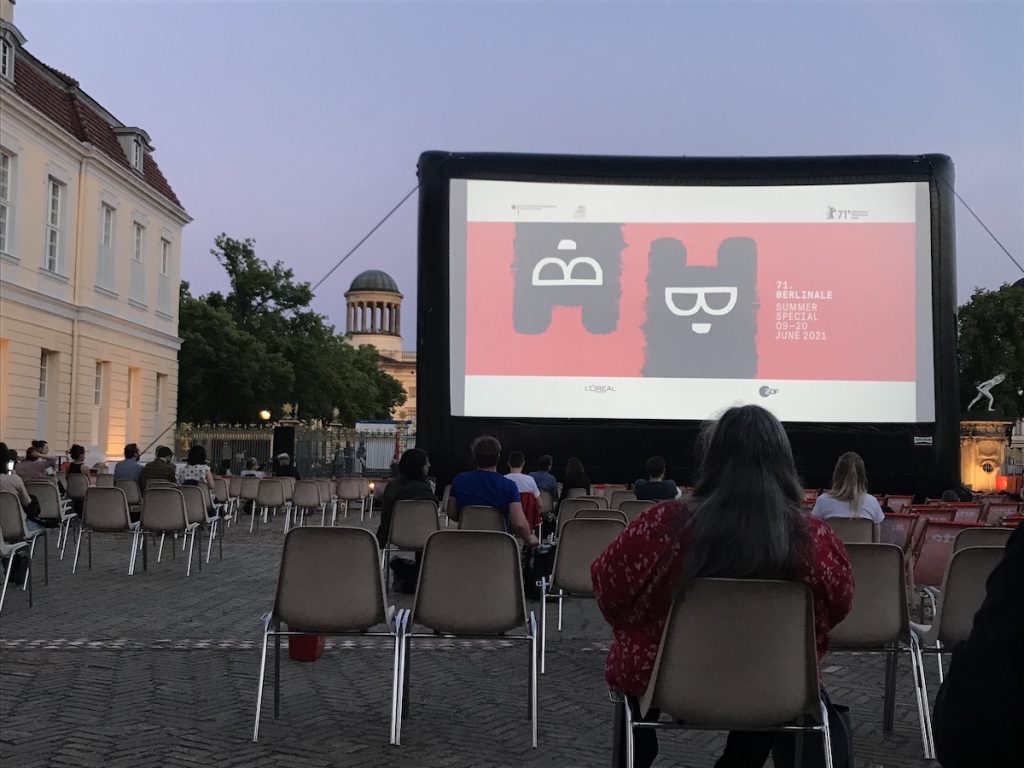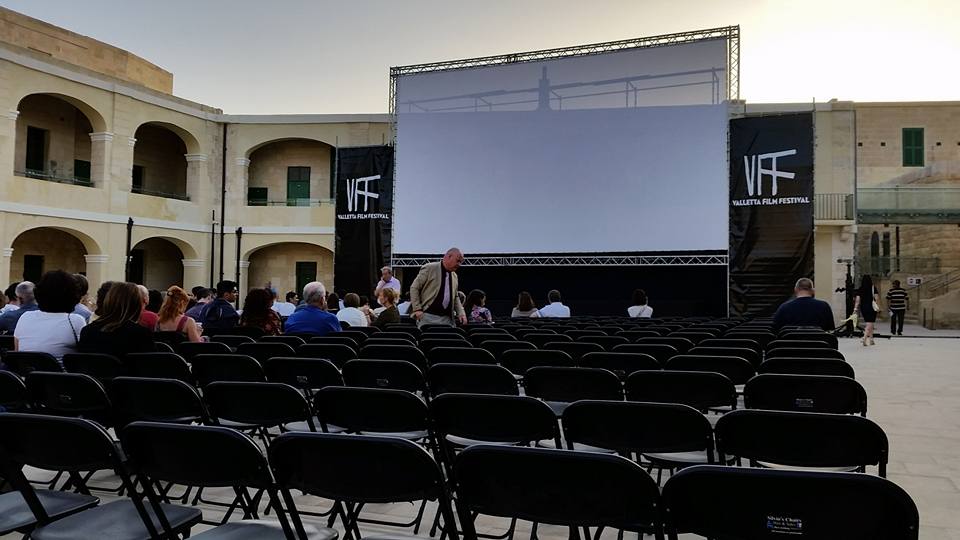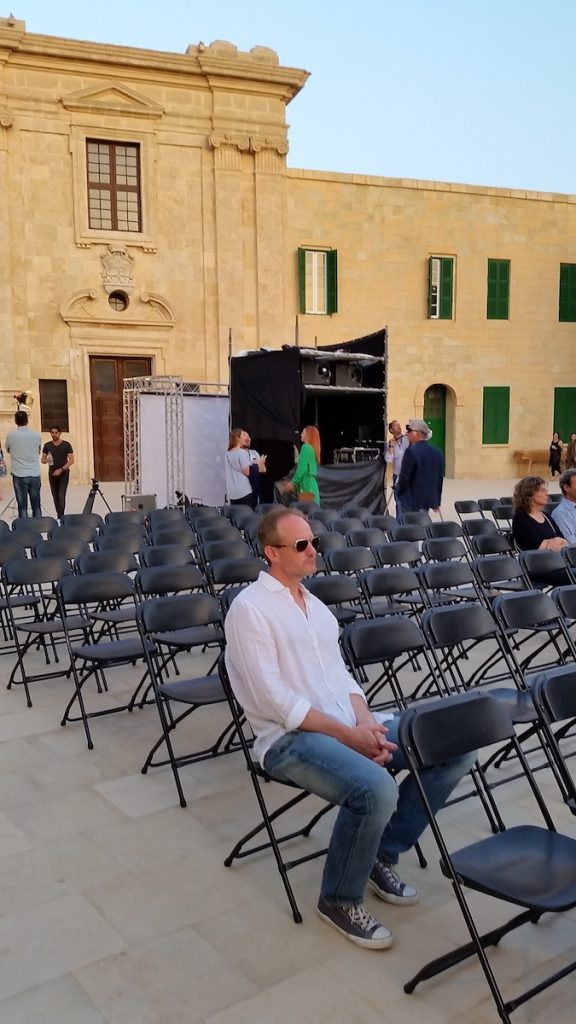
Covid cancelled Berlinale, but summer brought a week of screenings curated from this year’s films.
I watched the Silver Bear Grand Jury Prize winner last week a short bike ride away at Charlottenburg Palace.

It was the second-best place I’ve watched an outdoor film. The best was in Malta.
We attended a screening of Midnight Express on a hot summer night in the parade ground of Fort St. Elmo, the very same location director Alan Parker chose as the Turkish prison in his iconic film.
Malta was a popular filming location for its low cost, long stretches of good weather, and because it could act as a stand in for less stable Middle Eastern cities like Beirut or Tripoli.

Parker himself was on hand for the event, his first visit to Malta since the original film shoot in 1977. Unfortunately, the Q&A was doomed from the start.
After a brief introduction and initial questions by a Maltese television interviewer, the audience was invited to take the mic.
The first to step up was a plump grey haired woman in late middle age.
“I worked as a costume designer on your first film,” she said. “Do you remember me?”
Despite having made this film 39 years earlier, Parker graciously didn’t miss a beat.
“Yes, of course I remember you,” he said.
The gentle, soft spoken woman summarized her entire career in her excitement. “I did this, I did that, and I went on to have a career in costume design” to which Parker replied, “Oh good. I’m very glad to hear it.”
“You also did something naughty…” she added, pursing her lips and tipping her forehead down. “You put me in as an extra in a scene. Do you remember that…?”
All he could say was, “Oh dear. Did I?”

Next came a man with a curly white mullet and flat cap, wearing a type of plaid shirt and baggy jeans that are the badge of the retired. He stood, hitched up his pants, and cleared his throat.
“I’m in the industry too,” he began, and went on to detail every film he’d ever worked on, starting with the ones where he’d served coffee. He was looking not at Parker but at the people around him to see if they were listening.
“I was head of the Malta film studios,” he continued, building to some sort of point, “and we got a letter from the Prime Minister’s Office” — heavy emphasis on the name dropping — “saying ‘Did you allow that film? The Turks are so mad.’”
After pausing to laugh at his own joke, he said, “When we were trying to attract more film business in later years, people would ask me, ‘Who else worked in Malta?’ And I said…. Ah-ha…! We had Alan Parker!”
This was met with total silence.
“So we got a lot of business from that.”
“We made lots of money from dropping your name,” I said, turning to my wife. “He really thinks that’s a compliment.”
“What the hell is his question? He’s just babbling about himself.”
But he was coming to it. After waiting for thanks and applause that never came, he said, “Oh, and by the way, I have a question. Did the Turks get mad at you for the film? Did you have any similar diplomatic problems — like I did — because of it?”
“Yes…” Parker said. “The Turkish government wasn’t happy about it.”

After several more questions from the audience, the moderator took the mic.
“I have one last question for you, Mr. Parker, before we show the film.”
She reached across to touch his knee with her fingertips, building up to the moment she knew would bring down the house.
“I have to ask you about the frisbee scene, which is so dear to the hearts of many Maltese. Why, Mr. Parker, did you decide to ask him to speak in Maltese?”
She was referring to a scene very early in the film where the main character is smuggling drugs through a customs checkpoint at the airport. The officer searching his baggage pulls out a frisbee and asks him what this strange object is.
“Ahh, now that’s very funny,” Parker said, sitting up. “I wanted to use him for that scene because he had an interesting face, but he only spoke Maltese. He couldn’t speak Turkish. It was supposed to get dubbed over later. We forgot to do it because no one noticed.”
He laughed and wiped his eyes, so caught up in memory he didn’t realize the entire place had gone silent.
“It sounded exactly the same to us. Only two countries in the world noticed that error — Turkey and Malta. So… sorry about that.”
I could see the moderator’s face flush pink, even from where we were sitting.
“Well, it’s still dear to many Maltese…” she said, shifting in her seat and yanking down the bottom of her skirt. “Okay, mela, let’s start the film.”
The breeze off the sea was salty and fresh. The stars emerged from the curtain of night. Every time there was a street scene shot in Malta, the people around us pointed and turned to a neighbour. “There’s my uncle’s house,” they’d say, or “I know that shop!”
Parker’s original location for the prison, the lower section of Fort St. Elmo, was still derelict and unrestored.
It felt like we were sitting in the film.

You hoped we were enjoying warm weather: it’s now 106 here in Seattle. Not sure everyone is enjoy it. My question is “are outdoor movie showings common where you are? Unless it’s a rare outdoor drive in we don’t have any. Thanks
Yikes. I have a cousin who lives on the west coast of Canada. He said it’s scorching there too. Yes, Berlin does outdoor film screenings every summer, in a variety of places. They generally start pretty late. We’re around the same latitude as the bottom of James Bay, so it gets dark around 10pm at the height of summer.
Mention of Midnight Express is like mention of Deliverance… Make me squeeze my butt hard. 🙁
Ahh, the classic prison film.
About the Turkish Maltese anecdote … we can see how interpretation without knowing the story could lead to. Imagine in anthropology and archeology , we affirm with arrogance stories from things buried since millenaries while we can’t write our present history the right way. Just a reflexion. Speculation and maybe are the main constituant of life… except if someone drop a nuclear bomb on you… the outcome are pretty sure. And me squeezing my butts thinking of the big guard which sadly look to much like my favorite uncle and human being , my mother’s brother .
PS: You alone on a seat…nice picture for a piece on isolation and solitude 😉
Not much isolation there. The place was packed by the time the film started. We just arrived early to claim a space. It remains the coolest outdoor film screening I’ve ever attended. Yes, the interpretation was (unintentionally) funny. An entire story had been built around that one line, but the entire thing was an accident. No one would have known if Alan Parker hadn’t gone there and done a live Q&A.